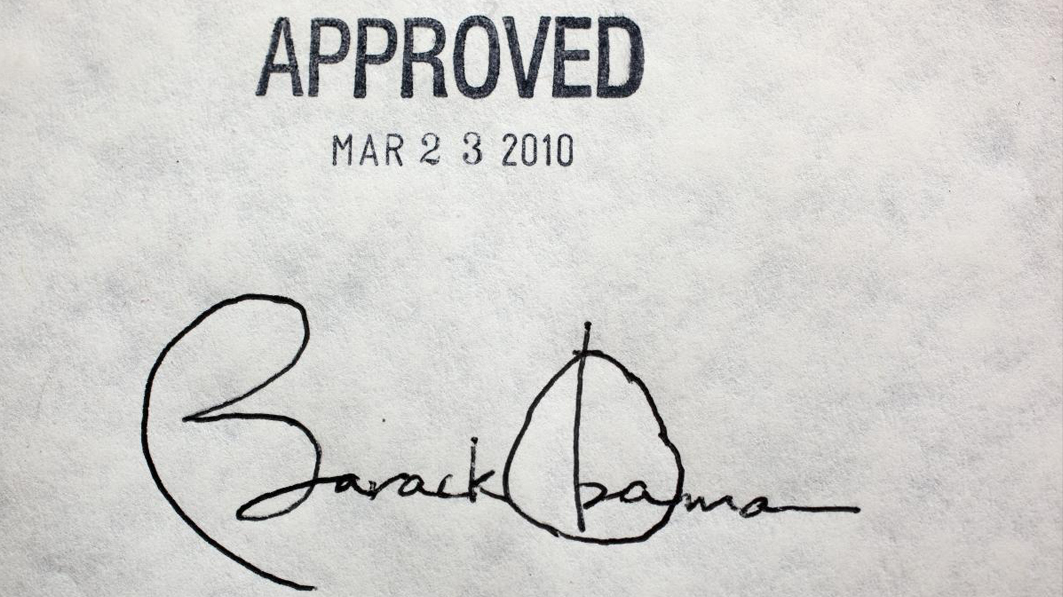In what could be considered a very technical “in the weeds” constitutional case, the 5th Circuit Court of Appeals this week heard oral arguments on the question whether the Patient Protection and Affordable Care Act, aka Obamacare, is unconstitutional. A federal district court judge in Texas so held in 2018, and this appeal followed.
The 2010 healthcare law was originally upheld by the U.S. Supreme Court in a controversial 2012 ruling. Chief Justice John Roberts wrote the Court’s opinion for the 5-4 majority, which also included liberal Justices Ruth Bader Ginsburg, Stephen Breyer, Sonia Sotomayor and Elena Kagan. The decision held that the Act’s main feature—requiring all citizens to purchase health insurance and to pay a fee for refusing to purchase insurance they didn’t want—was a tax, not a penalty, and was therefore a valid exercise of Congress’ taxing authority.
That requirement, known as the “individual mandate,” was included in Obamacare by Congress as the primary way to cover all the increased benefits the law mandated, such as coverage for children until age 26, and no rejection or higher premium for pre-existing conditions, among others.
Fast forward to December 2017. Congress, after many failed attempts to repeal Obamacare, succeeded in reducing the individual mandate “tax” to zero dollars. That relieved the coercive effects of the mandate on individuals who choose not to purchase insurance, and it set up the constitutional challenge that has now reached the 5th Circuit.
Here’s the reasoning behind the current challenge to Obamacare. Congress called the individual mandate “essential” to the operation of the law. The Supreme Court validated the mandate only because five justices considered the mandate to be a “tax.” However, since the mandate’s “tax” has been reduced to zero by Congress, it is no longer a “tax.” It is simply a command to purchase health insurance. As such, Congress does not have the authority under any other provision of the Constitution—such as the Commerce Clause—to order people to purchase health insurance. And since the individual mandate was deemed “essential” to the entirety of Obamacare’s success, the whole law must be struck down, not just the individual mandate. That’s oversimplified, but it captures the essence of the legal case.
And that argument isn’t necessarily a slam-dunk, as even some conservative constitutional experts agree. But it will provide an interesting lesson in constitutional interpretation whenever the 5th Circuit issues its decision in the case. And then it may be off to the Supreme Court again.
The case is titled State of Texas v. United States.






